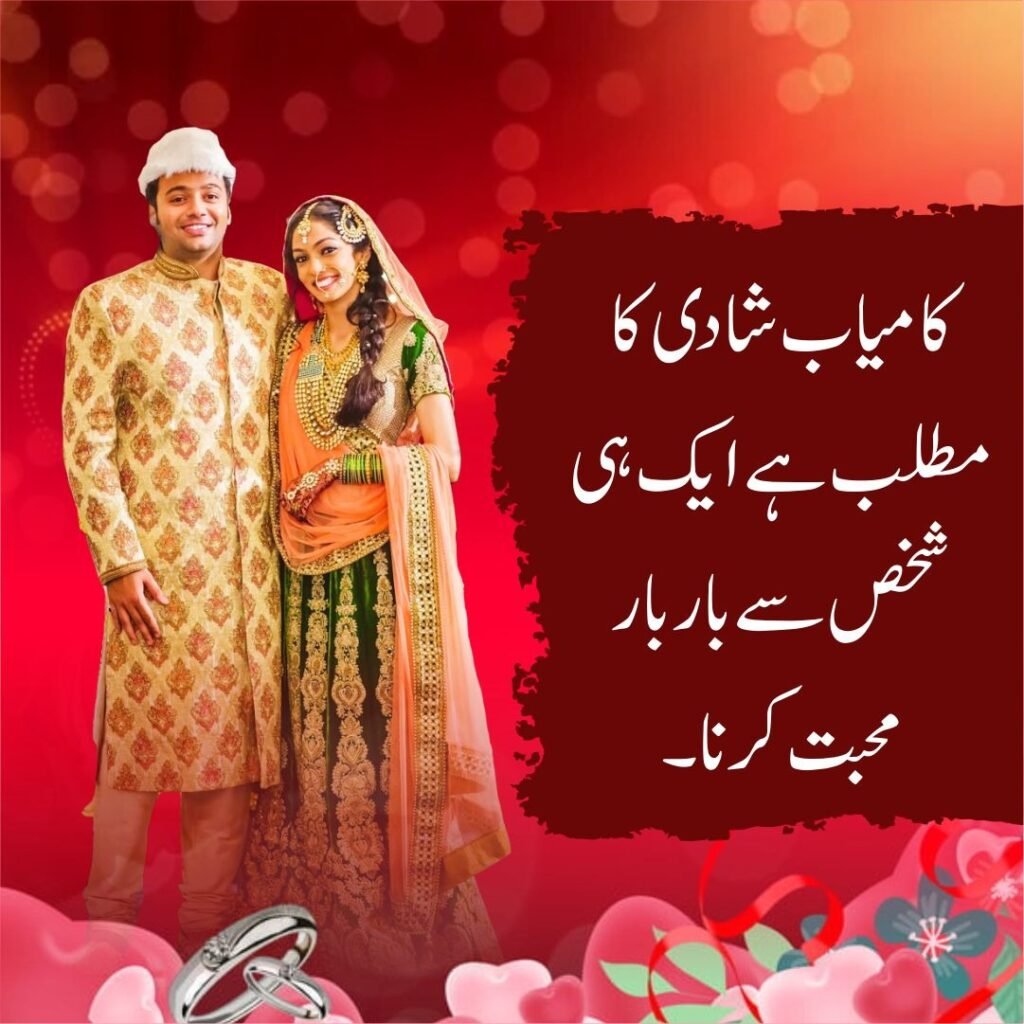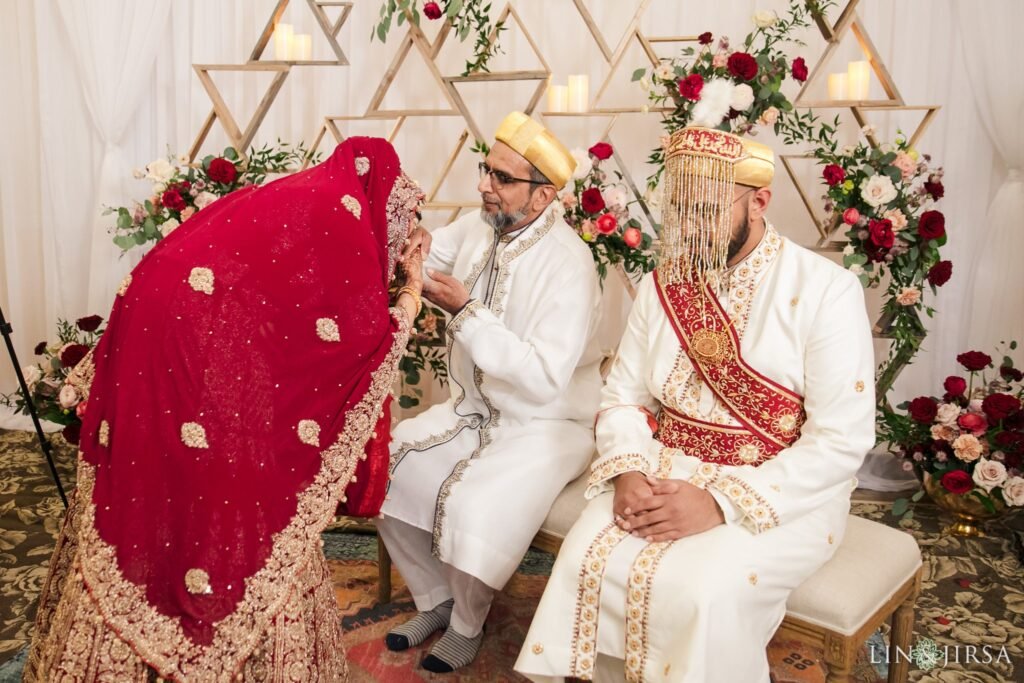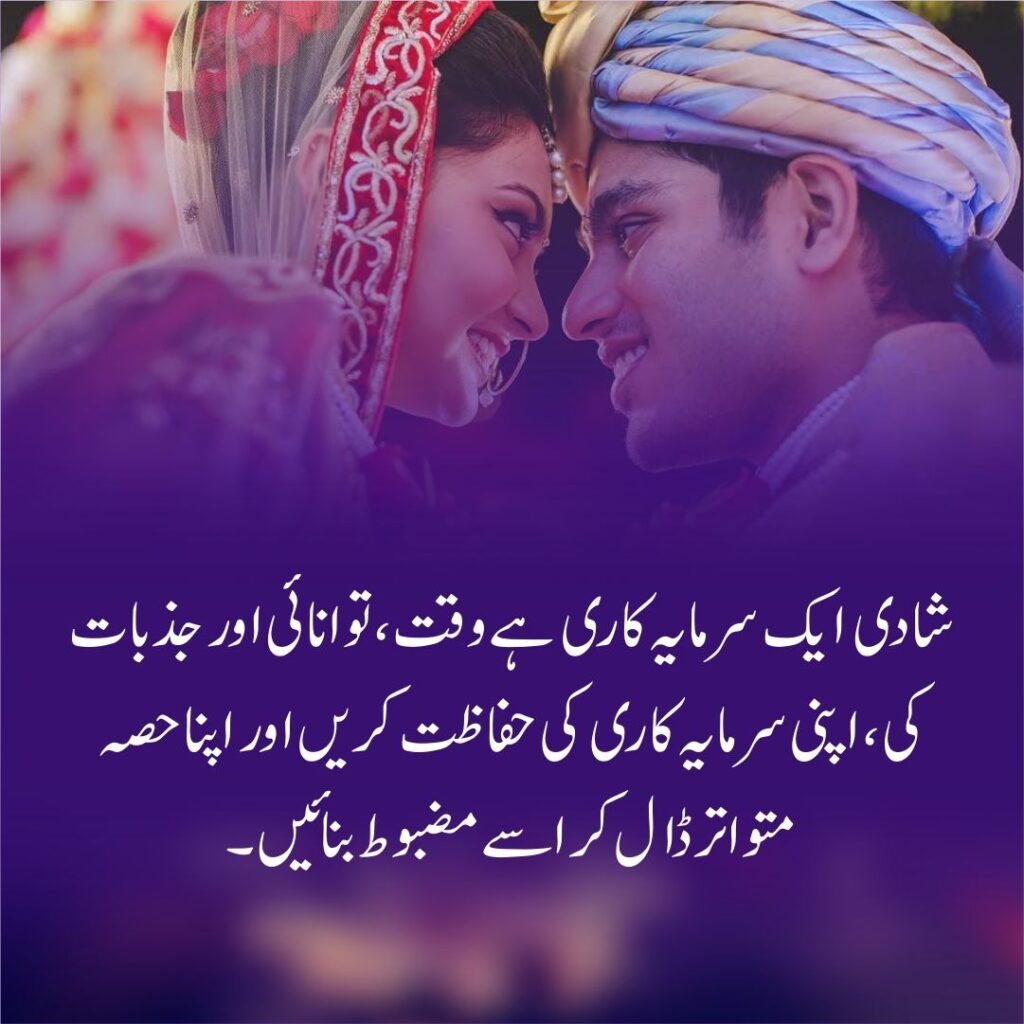In the modern era, technological advancements have revolutionized various aspects of our lives, including the solemnization of marriages. One such innovation is the concept of “Online Nikah,” a practice that has gained traction in recent years. This comprehensive guide aims to shed light on the online nikah process, its procedures, requisites, essentials, conditions, and its alignment with Islamic principles.
The Essence of Online Nikah:
Online Nikah refers to the solemnization of marriage conducted through digital means, allowing couples to unite in matrimony regardless of geographical distances. This method utilizes technology to streamline the traditional marriage process, making it more accessible and convenient for individuals separated by physical barriers.
The Procedure of Online Nikah:
The procedure for an online nikah involves several key steps. Firstly, both parties must express their intention to enter into the marriage contract. This can be done through written communication, such as emails or messaging platforms. Following this, the presence of two witnesses is crucial, and they must also confirm their acceptance of the marriage. Video conferencing platforms are often employed to facilitate virtual gatherings where the contract is verbally pronounced.
Requisites of Online Nikah:
To ensure the validity of an online nikah, certain requisites must be fulfilled. The consent of both parties is paramount, and the presence of two competent witnesses who can testify to the proceedings is essential. Additionally, the bride and groom must clearly express their acceptance of the marriage contract during the online ceremony.
Essentials of Online Nikah:
Online Nikah, like its traditional counterpart, requires essential elements to be valid. These include the proposal (ijab) from one party and the acceptance (qabul) from the other. The parties involved must also be eligible for marriage according to Islamic law, and the marriage contract should adhere to the principles of fairness and justice.
Conditions of Online Nikah:
Several conditions must be met to ensure the legitimacy of an online nikah. The presence of the bride and groom, even if virtual, is crucial, and both parties must be of sound mind and have reached the age of maturity as per Islamic law. Additionally, the absence of any legal impediments to the marriage, such as existing marital bonds, is imperative.
Online Nikah is Islamic:
Contrary to misconceptions, online nikah is fully aligned with Islamic principles. Islam places great emphasis on intention, consent, and the presence of witnesses in the marriage contract, all of which can be effectively fulfilled in an online setting. Scholars and jurists have acknowledged the validity of online nikah as long as it adheres to the foundational tenets of Islamic marriage.
The Convenience of Online Nikah: Exploring the Process
In the digital age, the concept of “Online Nikah” has emerged as a convenient and innovative way for couples to solemnize their marriage vows, overcoming geographical barriers. This article aims to delve into the process of online nikah, exploring its procedures, requisites, essentials, and conditions, while emphasizing its alignment with Islamic principles.
Understanding the Online Nikah Process:
The online nikah process begins with the expression of intent from both parties to enter into the sacred bond of marriage. Communication channels, such as emails or messaging platforms, facilitate this initial step. Following this, the presence of two competent witnesses is crucial. Video conferencing platforms often serve as the medium for the virtual gathering, where the marriage contract is verbally pronounced, mirroring the traditional process.
Procedure of Online Nikah:
The procedure of online nikah follows a structured yet adaptable framework. Firstly, the prospective bride and groom declare their intention to marry. This is typically done through written communication. Subsequently, a mutually agreed-upon date and time for the online ceremony is set. On the designated day, both parties, along with two competent witnesses, gather virtually to formalize the marriage contract. The officiant, often an Islamic scholar or qualified individual, leads the proceedings, ensuring adherence to Islamic rites and principles.
Requisites of Online Nikah:
For the validity of online nikah, certain requisites must be fulfilled. The foremost requirement is the clear and unambiguous consent of both parties to enter into the marriage contract. Additionally, the presence of two competent witnesses who can attest to the proceedings is mandatory. The witnesses play a vital role in ensuring the transparency and authenticity of the online nikah process.
Essentials of Online Nikah:
The essentials of online nikah mirror those of traditional marriages. The proposal (ijab) and acceptance (qabul) must be clearly communicated by the parties involved. Both the bride and groom, even if virtually present, must express their willingness to enter into the marital bond. The marriage contract should adhere to Islamic principles of fairness and justice, ensuring the rights and responsibilities of both parties are defined.
Conditions of Online Nikah:
Certain conditions must be met to ensure the legitimacy of an online nikah. Both parties should be of sound mind and have reached the age of maturity according to Islamic law. The absence of legal impediments to the marriage, such as existing marital bonds, is imperative. Additionally, the online nikah ceremony should adhere to the principles of equality and fairness as prescribed by Islam.

Some Usefull Links
- Online Nikah
- Online Shadi
- Pakistani Nikah Nama
- Online Nikah in Pakistan
- NADRA Marriage Certificate
- Online nikah & Marriage Documents
- Online Nadra Marriage Certificate
- English Nikah Nama Form
- Online Marriage in Lahore
- Online Marriage in Urdu
- Court Marriage in Pakistan
- Online Shadi in Pakistan
- Online Nikah nama Form
- NADRA Marriage Certificates
- Court Marriage Procedure
- Nikah Khawan Services
- Court Marriage & Nikah
- Court Marriage Law
- Court Marriage & Civil Marriage
- Nikah Khawan
- Online Marriage in Pakistan
- Online Nikah Service For Overseas Pakistanis
- Online Nikah in Islam
- Is Online Marriage Valid?



Contrary to misconceptions, online nikah is fully in line with Islamic principles. Islam places paramount importance on intention, consent, and the presence of witnesses in the marriage contract, all of which can be effectively fulfilled in an online setting. Scholars and jurists have recognized the validity of online nikah, emphasizing that as long as the essential Islamic requirements are met, the process is fully Islamic.
Is Online Nikah Valid in Pakistan? Unraveling the Legalities
The advent of technology has transformed various aspects of our lives, and the solemnization of marriages is no exception. “Online Nikah” has become a viable option for couples separated by geographical distances. This article aims to unravel the legalities surrounding online nikah in Pakistan, exploring its validity, procedures, requisites, essentials, conditions, and emphasizing its alignment with Islamic principles.
Legal Perspective on Online Nikah in Pakistan
The legal status of online nikah in Pakistan is a topic of interest and discussion. The country has a rich Islamic heritage, and its legal framework is influenced by Islamic principles. To determine the validity of online nikah, it’s crucial to examine both the legal and Islamic perspectives.
Procedure of Online Nikah in Pakistan
The procedure for online nikah in Pakistan follows a structured process. Initially, both parties express their intent to marry through written communication, often using emails or messaging platforms. Subsequently, a date and time are agreed upon for the online ceremony. The virtual gathering includes the prospective bride and groom, along with two competent witnesses. The officiant, often an Islamic scholar, guides the ceremony, ensuring adherence to Islamic rites and principles.
Requisites of Online Nikah in Pakistan
For the validity of online nikah in Pakistan, certain requisites must be fulfilled. The clear and unequivocal consent of both parties is essential. Two competent witnesses, who are morally upright and have reached the age of maturity, must be present during the online ceremony. These witnesses play a crucial role in ensuring the transparency and authenticity of the online nikah process.
Essentials of Online Nikah in Pakistan
The essentials of online nikah in Pakistan align with Islamic principles. The proposal (ijab) and acceptance (qabul) must be clearly communicated by the parties involved. The bride and groom, even if virtually present, must express their willingness to enter into the marital bond. The marriage contract should adhere to the principles of fairness and justice, as prescribed by Islam.
Conditions of Online Nikah in Pakistan
Certain conditions must be met to ensure the legitimacy of an online nikah in Pakistan. Both parties should be of sound mind and have reached the age of maturity according to Islamic law. Legal impediments, such as existing marital bonds, must be absent. Additionally, the online nikah ceremony should adhere to the principles of equality and fairness as prescribed by Islam and the laws of Pakistan.
Online Nikah is Islamic and Legal in Pakistan
Contrary to misconceptions, online nikah is not only recognized as valid in Pakistan but is also considered in accordance with Islamic principles. The country’s legal system acknowledges the importance of religious practices, and as long as the essential requirements of Islamic marriage are met, online nikah is both legally and Islamically valid.
The Shariah Perspective: Permissibility of Online Nikah in Islam
In the digital age, technological advancements have given rise to innovative solutions in various aspects of life, including the solemnization of marriages. The concept of “Online Nikah” has sparked discussions regarding its compatibility with Islamic principles. This article aims to delve into the Shariah perspective, exploring the permissibility of online nikah in Islam, while examining the procedures, requisites, essentials, and conditions outlined by Islamic law.
Shariah and the Essence of Nikah
Islamic law, known as Shariah, forms the foundation for all aspects of a Muslim’s life, including marriage. Nikah, the Islamic marriage contract, is considered a sacred covenant guided by the principles of justice, fairness, and consent. To understand the permissibility of online nikah, it is essential to examine its adherence to these core principles.
Procedures of Online Nikah in Accordance with Shariah
The procedures of online nikah must align with Shariah principles to be considered permissible. The initial step involves the clear expression of intent by both parties to enter into the marriage contract. This communication, often through written means such as emails or messaging platforms, sets the groundwork for the subsequent process. The online ceremony itself, conducted via video conferencing, mirrors the traditional nikah proceedings, with an officiant guiding the contract pronouncement.


Requisites of Online Nikah According to Shariah
For online nikah to be permissible in Islam, certain requisites must be fulfilled in line with Shariah principles. The foremost requirement is the unequivocal consent of both parties to enter into the marriage contract. This consent must be genuine and free from any form of coercion. Additionally, the presence of two competent witnesses, who are morally upright and have reached the age of maturity, is crucial to ensuring the validity and authenticity of the marriage contract.
Essentials of Online Nikah in Shariah
The essentials of online nikah, as dictated by Shariah, mirror those of traditional marriages. The proposal (ijab) and acceptance (qabul) must be clearly communicated by the parties involved. The bride and groom, even if virtually present, must express their willingness to enter into the marital bond. The marriage contract should adhere to the principles of fairness and justice, ensuring the rights and responsibilities of both parties are clearly defined.
Conditions of Online Nikah in Accordance with Shariah:
Islamic law outlines specific conditions that must be met for a nikah to be valid. For online nikah, these conditions remain consistent. Both parties should be of sound mind and have reached the age of maturity according to Islamic law. Legal impediments, such as existing marital bonds, must be absent. The online nikah ceremony should adhere to the principles of equality and fairness as prescribed by Islam.
Online Nikah is Islamic
Contrary to misconceptions, the permissibility of online nikah in Islam is supported by the fact that it adheres to the fundamental principles outlined in Shariah. Islam places great importance on intention, consent, and the presence of witnesses in the marriage contract—all of which can be effectively fulfilled in an online setting. Scholars and jurists acknowledge the validity of online nikah, emphasizing its compatibility with Islamic principles when conducted in accordance with Shariah guidelines.
Online nikah and Islamic principles
In conclusion, the Shariah perspective on online nikah underscores its permissibility within the framework of Islamic principles. By examining the procedures, requisites, essentials, and conditions set forth by Shariah, it becomes evident that online nikah, when conducted in accordance with these principles, is a legitimate and Islamically sanctioned method of solemnizing the sacred covenant of marriage in the contemporary digital age.
Navigating the Online Nikah Process: Step-by-Step Overview
In the evolving landscape of modern technology, the traditional process of nikah, the Islamic marriage contract, has found a contemporary counterpart in the form of “Online Nikah.” This article aims to provide a comprehensive and step-by-step overview of navigating the online nikah process, encompassing its procedures, requisites, essentials, conditions, and its alignment with Islamic principles
Step 1: Expressing Intent – The Beginning of Online Nikah
The online nikah process commences with the clear expression of intent from both parties to enter into the sacred bond of marriage. This initial step is often facilitated through written communication, utilizing platforms such as emails or messaging apps. The mutual understanding and consent at this stage set the foundation for the subsequent steps.
Step 2: Agreement on Date and Time – Setting the Virtual Ceremony
Once the intent is established, the next step involves the prospective bride and groom agreeing on a suitable date and time for the online nikah ceremony. This ensures that both parties and the required witnesses can be present virtually to solemnize the marriage contract. Coordination and communication are essential in this phase to align everyone’s schedules.
Step 3: Virtual Gathering – Assembling for the Online Ceremony
On the agreed-upon date and time, the virtual gathering takes place. Through video conferencing platforms, the bride, groom, and two competent witnesses come together to participate in the online nikah ceremony. The virtual setting aims to replicate the physical presence required in traditional nikah ceremonies.
Step 4: Pronouncement of Marriage – Conducting the Ceremony
During the online nikah ceremony, an officiant, often an Islamic scholar or a qualified individual, guides the proceedings. The marriage contract is pronounced verbally, with the bride and groom expressing their acceptance of the union. This step is essential to meet the conditions of an Islamic nikah, where clear proposals (ijab) and acceptances (qabul) are exchanged.
Step 5: Presence of Witnesses – Ensuring Authenticity
The presence of two competent witnesses is a requisite for the validity of the online nikah. These witnesses play a crucial role in ensuring the transparency and authenticity of the marriage contract. They testify to the proceedings, confirming the consent of both parties and the adherence to Islamic principles.
Step 6: Consent and Acknowledgment – Confirming the Commitment
During the online nikah ceremony, it is imperative that both the bride and groom express their clear consent and acknowledgment of the marriage contract. This ensures that the union is entered into willingly and in accordance with Islamic principles.
Step 7: Documentation and Legal Recognition – Recording the Nikah
After the online nikah ceremony, it is advisable to document the marriage contract. This documentation serves as a record of the union and may be required for legal recognition. It reinforces the transparency and legitimacy of the online nikah process.
Contact today for Court marriage!
Online Marriage is a growing trend where couples meet and marry through digital means, such as dating websites, social media, and matchmaking apps. It is becoming more common as technology advances, and people seek alternative ways to find love and companionship.
Online nikah process involves a series of well-defined steps
Navigating the online nikah process involves a series of well-defined steps that mirror the traditional nikah ceremony. From expressing intent to the pronouncement of marriage and the presence of witnesses, each step is crucial for the validity and authenticity of the online nikah. By adhering to these steps, couples can successfully navigate the online nikah process, embracing the convenience of technology while upholding the sacred principles of Islamic marriage.
Online Nikah vs. Traditional Nikah: A Comparative Analysis
As technology continues to reshape various aspects of our lives, it inevitably influences cultural and religious practices, including the solemnization of marriages. The emergence of “Online Nikah” has sparked discussions about its differences and similarities when compared to the traditional nikah ceremony. This article aims to provide a comprehensive comparative analysis of Online Nikah versus Traditional Nikah, exploring the procedures, requisites, essentials, conditions, and emphasizing the Islamic validity of both approaches.
Online Nikah: A Technological Innovation
Online Nikah represents a paradigm shift in the way marriages are solemnized. In this digital age, couples separated by geographical distances can now come together virtually to perform the nikah ceremony. The process often involves written communication, video conferencing, and the utilization of various online platforms.
Traditional Nikah: Embracing Rituals and Customs
Traditional Nikah, on the other hand, adheres to the well-established customs and rituals that have been part of Islamic culture for centuries. It typically involves physical presence at a specified location, with the bride, groom, officiant, and witnesses gathering in person to conduct the marriage ceremony.
Procedures: Online Nikah vs. Traditional Nikah
The procedures for Online Nikah and Traditional Nikah share common elements. Both involve the expression of intent by the parties to enter into the marriage contract. In Online Nikah, this is often done through written communication, while Traditional Nikah relies on verbal communication. The actual ceremony, where the marriage contract is pronounced, is conducted through video conferencing in Online Nikah and in person in Traditional Nikah.
Requisites and Essentials: A Common Ground
The requisites and essentials of the marriage contract remain consistent between Online Nikah and Traditional Nikah. Both require clear and unequivocal consent from the parties involved. The presence of two competent witnesses, morally upright and of legal age, is essential to validate the marriage contract in both settings. The proposal (ijab) and acceptance (qabul) must be clearly communicated, ensuring a mutual understanding of the commitment.
Conditions: Aligning with Islamic Principles
Both Online Nikah and Traditional Nikah must adhere to specific conditions outlined by Islamic principles for their validity. Parties should be of sound mind and have reached the age of maturity. Legal impediments to the marriage, such as existing marital bonds, must be absent. Equality, fairness, and justice must be maintained in the marriage contract, reflecting the core principles of Islamic law.
Islamic Validity: Online Nikah and Traditional Nikah
From an Islamic perspective, both Online Nikah and Traditional Nikah are valid methods of solemnizing the marriage contract. Islam places emphasis on intention, consent, and the presence of witnesses, all of which can be fulfilled in both settings. Scholars and jurists recognize the validity of both approaches, provided they adhere to the foundational principles of Islamic marriage.
Online nikah- an evolution of marriage practices
In conclusion, the comparative analysis of Online Nikah versus Traditional Nikah highlights the evolution of marriage practices in response to technological advancements. While the methods differ in terms of the mode of communication and physical presence, the essential components and conditions remain consistent. Whether conducted online or in person, both approaches are valid expressions of commitment and adherence to Islamic principles, showcasing the adaptability of Islamic traditions in the modern era.
Online Nikah Requirements: What You Need to Know
As the world embraces technological advancements, the concept of “Online Nikah” has gained prominence, providing a convenient solution for couples separated by geographical distances. Understanding the requirements for an online nikah is crucial for those seeking to embark on this digital matrimonial journey. This article aims to provide a comprehensive overview of the requisites, essentials, and conditions of online nikah, emphasizing its adherence to Islamic principles.
Requisites of Online Nikah
The requisites for online nikah mirror the fundamental elements of traditional Islamic marriage. Firstly, both parties must express a clear and unequivocal intent to enter into the marriage contract. This expression of intent is often facilitated through written communication, such as emails or messaging platforms, serving as the initial step in the online nikah process.

Essentials of Online Nikah
The essentials of online nikah align with the core principles of Islamic marriage. The proposal (ijab) and acceptance (qabul) must be clearly communicated by the parties involved. This exchange signifies the mutual agreement to enter into the marital bond. The bride and groom, even if virtually present, must express their willingness to commit to the marriage contract, reinforcing the Islamic concept of free and informed consent.
Conditions of Online Nikah
Certain conditions must be met to ensure the legitimacy of an online nikah. Both parties should be of sound mind and have reached the age of maturity according to Islamic law. Legal impediments, such as existing marital bonds, must be absent. The online nikah ceremony should adhere to the principles of equality and fairness, reflecting the Islamic commitment to justice in matrimonial contracts.
Procedure of Online Nikah
The procedure of online nikah involves several key steps. After the expression of intent, the prospective bride and groom, along with two competent witnesses, agree on a date and time for the online ceremony. The virtual gathering takes place through video conferencing, and the officiant, often an Islamic scholar, guides the proceedings, ensuring adherence to Islamic rites and principles. The pronouncement of the marriage contract and the acknowledgment of both parties solidify the procedure.
Islamic Validity of Online nikah
Online nikah, when conducted in accordance with the requisites, essentials, and conditions outlined in Islamic law, is considered valid. Islam places significant importance on intention, consent, and the presence of witnesses in the marriage contract, elements that can be effectively fulfilled in the online nikah process. Scholars and jurists recognize the legitimacy of online nikah as long as it adheres to the foundational tenets of Islamic marriage.
Legal Recognition and Documentation
While online nikah is recognized within the framework of Islamic law, couples may consider documenting the marriage contract for legal purposes. Legal recognition may vary depending on jurisdiction, and having a documented record can serve as proof of the union. Consulting with legal authorities and understanding the requirements for legal recognition is advisable.In conclusion, understanding the requirements of online nikah is essential for those considering this modern approach to marriage. From expressing intent to the acknowledgment of both parties, adherence to requisites, essentials, and conditions ensures the legitimacy of online nikah in accordance with Islamic principles. As couples navigate the digital landscape of matrimony, awareness of these requirements contributes to a meaningful and valid online nikah experience.
